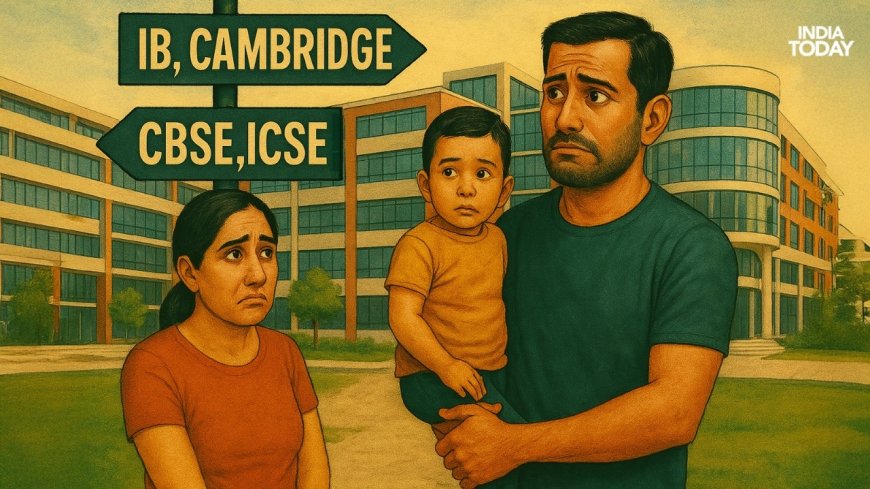Why Indian parents are torn between CBSE and international boards
Why Indian parents are torn between CBSE and international boards

Why Indian Parents are Torn Between CBSE and International Boards
News by dharmyuddh.com
Understanding the Dilemma
In recent years, Indian parents have found themselves facing a significant dilemma when it comes to their children's education. The choice between the Central Board of Secondary Education (CBSE) and various international boards has become increasingly complex. With each option presenting its own set of advantages and challenges, many parents are left feeling torn. This article explores the reasons behind this growing indecision and the factors influencing their choices.
CBSE: The Established Path
For decades, CBSE has been the preferred choice for many families across India. Being a government-recognized board, CBSE offers a structured curriculum that emphasizes core subjects such as Science, Mathematics, and Social Studies. It prepares students for various competitive exams and has a vast network of schools across urban and rural areas. Parents often appreciate the affordability and widespread acceptance of CBSE qualifications in higher education.
International Boards: A Global Outlook
On the other hand, international boards such as the International Baccalaureate (IB), Cambridge International Examinations (CIE), and others present a modern approach to learning. These boards are known for their innovative curricula that foster critical thinking, creativity, and global awareness. For parents who envision their children pursuing higher education abroad or working in multinational companies, the international board system may seem like a more fitting option.
Factors Influencing Parental Choices
Several factors contribute to parents' choices between CBSE and international boards. Firstly, parental aspirations play a crucial role; many parents desire to provide their children with a competitive edge in a globalized world. Secondly, school infrastructure, teacher qualifications, and the overall learning environment significantly impact decisions. Finally, financial considerations are paramount as international boards often come with higher tuition fees.
The Hybrid Approach
Interestingly, some parents opt for a hybrid approach, allowing their children to receive the benefits of both systems. This may include enrolling them in schools that offer CBSE curriculum alongside international programs. This approach aims to equip students with a holistic education that combines cultural and global viewpoints.
Conclusion: Making the Choice
Ultimately, the decision between CBSE and international boards is a personal choice that reflects each family's values, aspirations, and circumstances. As the education landscape continues to evolve, parents must weigh their options carefully and consider what is in the best interest of their children’s future. Engaging in dialogues with educators, exploring school visits, and researching outcomes can help in making an informed decision.
For more updates, visit dharmyuddh.com.







